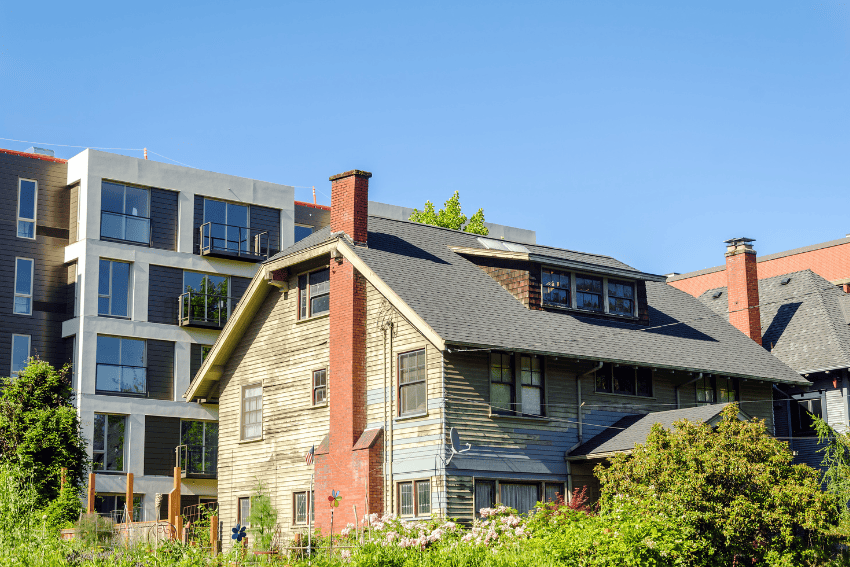
Are you considering buying a foreclosed property and wondering how to navigate the process with a mortgage? Foreclosures can be an excellent opportunity for savvy real estate investors or aspiring homeowners looking for a great deal. In this blog post, we’ll explore what foreclosures are, how to buy a foreclosure, and how you can secure a mortgage loan for a foreclosed property. So, let’s dive in and uncover the secrets to a successful foreclosure purchase!
What Is a Foreclosure?
A foreclosure occurs when a homeowner fails to make mortgage payments, leading the lender to take legal action to repossess the property. Once the foreclosure process is complete, the property becomes a foreclosed property or a real estate foreclosure. These properties are often sold at a lower price compared to similar properties in the market, making them attractive to buyers who are looking for a good deal.
How to Buy a Foreclosure?
Buying a foreclosure involves several steps, and it’s crucial to approach the process with diligence and care. Here’s a step-by-step guide to help you navigate through the purchase of a foreclosed property:
- Research and identify foreclosed properties: Start by searching online foreclosure listings or contacting local real estate agents specializing in foreclosures. Look for properties that align with your budget, location preferences, and desired property type.
- Evaluate the property condition: Foreclosed properties are typically sold as-is, meaning they may require repairs or renovations. Conduct a thorough inspection or hire a professional inspector to assess the property’s condition and estimate any additional costs you might incur.
- Get pre-approved for a mortgage: Before you begin bidding on foreclosed properties, it’s wise to get pre-approved for a mortgage loan. This will give you a clear understanding of your budget and help you act quickly when you find the right property.
- Attend foreclosure auctions or work with a real estate agent: Some foreclosed properties are sold through public auctions, while others are listed with real estate agents. Attend auctions or work with an agent who can guide you through the process, handle paperwork, and negotiate on your behalf.
- Perform due diligence: Once you’ve identified a foreclosed property you’re interested in, perform thorough due diligence. Research the property’s history, liens, and any potential legal issues. It’s also essential to familiarize yourself with local foreclosure laws and regulations.
- Make an offer: When you’re ready to make an offer, consider the property’s market value, your budget, and any necessary repairs or renovations. Keep in mind that foreclosed properties often attract multiple offers, so be prepared to compete.
- Secure a mortgage loan: If your offer is accepted, it’s time to secure a mortgage loan for the foreclosed property. Work with a reputable lender who specializes in financing foreclosures. They will guide you through the application process and help you obtain the necessary financing.
View mortgage rates for
April 28, 2024
Can I Use a Traditional Mortgage Loan to Buy a Foreclosed Property?
Yes, there are mortgages for foreclosures. Many lenders offer mortgage financing options specifically for foreclosed properties. However, it’s important to understand that there might be some additional considerations and requirements compared to buying a traditional property. Here are a few key points to keep in mind:
- Property Condition: Foreclosed properties are typically sold as-is, meaning they are sold in their current condition. Some traditional mortgage lenders may require certain property conditions or repairs before approving the loan. It’s essential to communicate with your lender about the property’s condition to ensure it meets their requirements.
- Appraisal: The lender will usually conduct an appraisal to determine the market value of the foreclosed property. The appraisal helps the lender assess the property’s worth and ensure that the loan amount aligns with the property’s value. If the property requires extensive repairs or has significant issues, it could impact the appraisal value and potentially affect your loan approval.
- Financing Programs: JVM Lending has a variety financing programs for foreclosed properties, such as FHA 203(k) loans or Fannie Mae HomeStyle Renovation loans. These programs provide financing options that incorporate the purchase price and the cost of renovations or repairs into a single mortgage. They can be beneficial if you’re considering purchasing a foreclosed property that needs substantial renovation or repairs.
- Credit and Income Requirements: Just like with any mortgage application, lenders will assess your creditworthiness and income stability. It’s crucial to have a good credit score and a stable income to increase your chances of loan approval. Lenders may also consider the property’s condition and location when evaluating your application.
Are There Any Advantages to Buying Foreclosed Properties With a Mortgage?
Buying foreclosed properties with a mortgage offers several advantages that make it an attractive option for real estate investors and homebuyers alike.
- Lower Purchase Price: One of the most significant advantages of buying foreclosed properties is the potential to purchase at a lower price compared to similar properties in the market. Foreclosed properties are typically sold below their market value as the selling institution aims to recover the outstanding mortgage balance or clear the property from their books. This discounted price allows buyers to acquire properties at a more affordable cost, creating potential for significant savings.
- Build Equity & Profit: Buying a foreclosed property with a mortgage offers the dual benefits of equity building and profit potential. Purchasing below market value creates instant equity, and as the property appreciates and mortgage payments are made, equity grows, providing financial leverage. Additionally, by renovating and improving the property, it can be sold at a higher price, generating a profit. Careful planning, market research, and strategic decision-making are essential to maximize equity and profit opportunities. Ultimately, buying a foreclosed property with a mortgage presents a strategic approach for long-term financial stability and real estate investment success.
- Diverse Property Selection: Foreclosed properties come in various types, including single-family homes, condominiums, townhouses, or even commercial properties. This diversity provides buyers with a range of options to choose from, allowing them to align their purchase with their investment goals or personal preferences. Whether you’re looking for a fixer-upper, a rental property, or a home to live in, the availability of foreclosed properties can cater to your specific needs.
What are the potential pitfalls of purchasing Foreclosed Homes?
While buying foreclosed properties can offer significant advantages, it’s important to be aware of potential pitfalls that could arise during the process. By understanding these risks, you can approach the purchase with caution and take steps to mitigate any challenges. Here are some potential pitfalls to consider:
- Property Condition: Foreclosed homes are often sold “as-is,” meaning they are sold in their current condition. These properties may have been neglected or poorly maintained by the previous owner. As a result, there could be hidden issues, such as structural problems, plumbing or electrical issues, or damage caused by vandalism or neglect. It’s crucial to conduct a thorough inspection or hire a professional inspector to assess the property’s condition before making a purchase.
- Liens and Legal Complications: Foreclosed properties may have outstanding liens or legal complications attached to them. Liens can arise from unpaid taxes, contractor or mechanic’s liens, or other outstanding debts. It’s crucial to conduct a title search and work with a qualified real estate attorney to ensure that the property’s title is clear and free of any encumbrances. Failing to address these issues could result in legal disputes or financial burdens after the purchase.
- Limited Property Information: When purchasing a foreclosed property, you might have limited access to information about the property’s history or maintenance records. The previous owner may not have provided necessary disclosures, and the lender or selling institution might not have comprehensive knowledge about the property. This lack of information can make it challenging to fully understand the property’s condition or potential issues you might face down the line.
Need a foreclosure expert? Contact JVM Lending!
Buying a foreclosed property with a mortgage can be a smart investment if approached with caution, proper research, and working with an experienced lender like JVM Lending. By understanding the foreclosure process, conducting due diligence, and securing a suitable mortgage loan from a lender with a stellar reputation for guiding homebuyers through the mortgage process, you can unlock the potential of purchasing a discounted property. Remember to consult with an expert advisor from JVM Lending’s team who specialize in foreclosures to guide you through the process.










